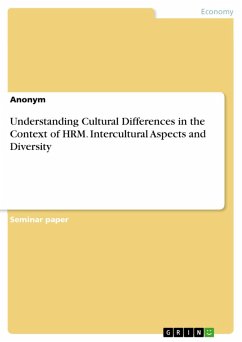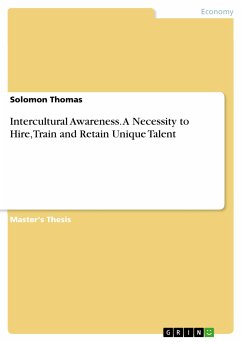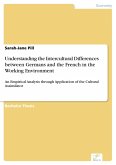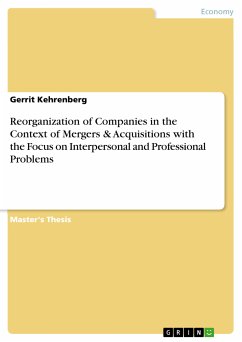Seminar paper from the year 2021 in the subject Leadership and Human Resources - Leadership, grade: 1,0, University of Applied Sciences Köln RFH (Ingenieurwesen), course: Human Ressources Management, language: English, abstract: HR must be properly trained to observe, analyze and overcome cultural differences. In this paper, an overview of culture and how it can be understood in the context of Human Resources management (HRM) is given. Starting off, a definition of the term "culture", followed by briefly explained theoretical framework regarding culture theory by Geert Hofstede and Edgar Schein are presented. Those frameworks will help to understand the necessity of diversity management in form of training in HRM, where multiple examples are depicted. Two merger case studies - a failure and a success - of the automobile industry will then be analyzed to emphasize the importance of acknowledging cultural differences in the business world. To conclude this term paper, a summary of key facts regarding the significance of culture in the context of HRM is presented. When hiring new employees, Human Resources (HR) has the duty to help employees to adapt to their new job and new environment. Depending on the employee, adapting can become harder, if the employee is confronted with cultural differences. The difference could be solely of organizational, but if the employee is e. g. from another country and/or continent, they could experience a culture shock, which would result in a decreased employee productivity, engagement and success, if not handled properly by HR.
Dieser Download kann aus rechtlichen Gründen nur mit Rechnungsadresse in A, B, BG, CY, CZ, D, DK, EW, E, FIN, F, GR, HR, H, IRL, I, LT, L, LR, M, NL, PL, P, R, S, SLO, SK ausgeliefert werden.









